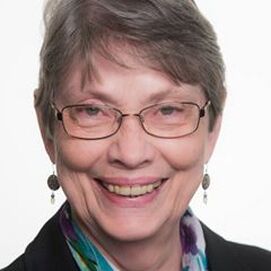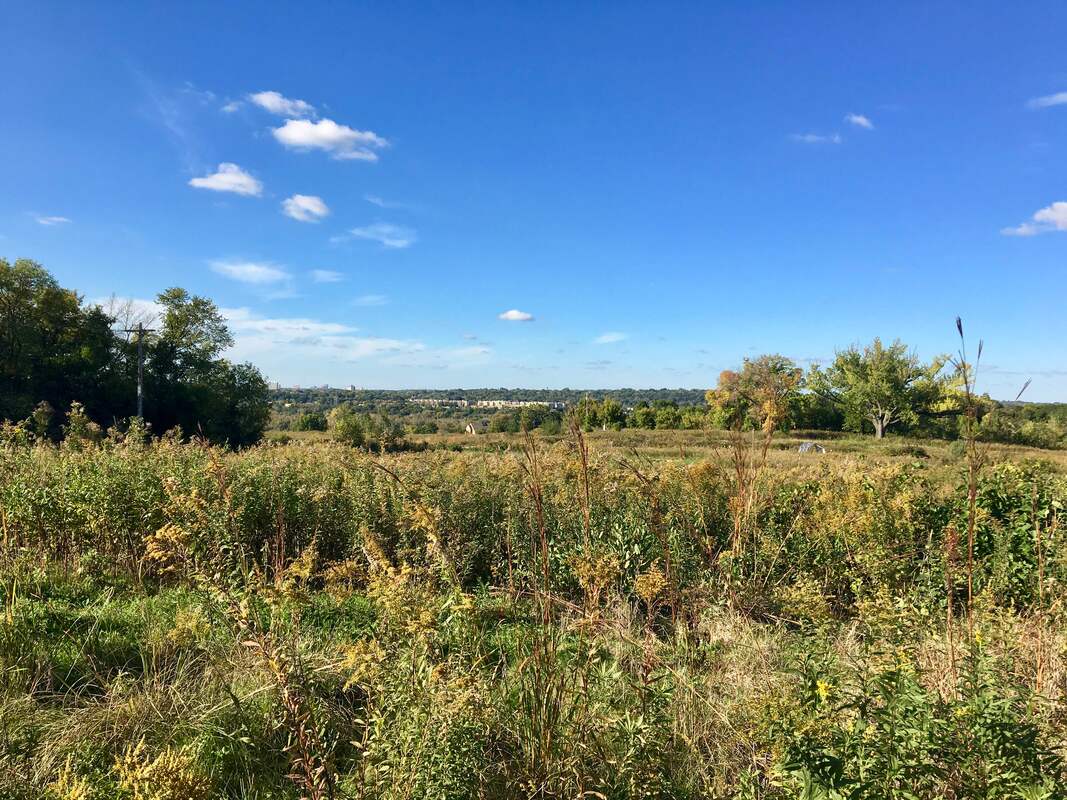 Pauline Eichten, on behalf of the Beloved Community Staff Team Every Tuesday night over the course of seven weeks in September and October, some 200 people participated in at least one of a series of workshops led by Team Dynamics. This is part of Unity’s work toward realizing our Ends — to create a multicultural spiritual home and space for racial healing and dismantling dominant culture. In last month’s newsletter, we shared an overview of the first four workshops. Here we’ll offer a brief overview of the last three, as well as some reflections from participants. The fifth workshop, Social Change + Social Movements, described social movements as a contest of values and ideas. Unity’s movement toward an antiracist multicultural spiritual community rises out of three values: intersectionality and complexity of identities; interconnection, not alienation; and interdependence, not extreme individuality. The workshop also introduced the need to lead with a positive vision, a “Wow” statement that expresses the desired outcome that motivates us — or as presenter Alfonso Wenker said, “gives us goose bumps.” Workshop six, Organizing + Action, defined organizing as people casting a vision, building relationships, amassing resources and then using those to effect a transformation. It also identified a feedback loop as critical, asking, “Are we willing to be changed by what we learn? Who are our messages for? Is what we’re doing working?” The final workshop reviewed the tools and content from previous sessions and included a call to accountability. Each participant was asked to consider one area of focus and examine what they might do differently given what they had learned. As in every workshop, there was an opportunity to share with others in a smaller breakout group. We took the need for feedback to heart, wondering how participants felt about these workshops and what we might learn from them. We sent out a survey to everyone who had registered. Our return rate was about 11%. Using the format modeled by Team Dynamics, we asked people to identify one thing they were grateful for and one commitment they had made. Expressions of gratitude included:
Among the stated commitments were to:
One person wants to become “ever mindful of my white culture, the characteristics … I manifest in social situations, and to ‘tame’ the manifestations so they don’t interfere with relationship building.” We asked workshop participants, did the series help you connect to Unity’s work toward racial justice? Overall, survey respondents reported a greater appreciation and understanding of the work Unity has been doing. As one participant put it, “I knew that Unity’s investment in this work was a proper priority. This series helped illuminate ‘why’ and explain some of the internal work that we need to be doing.” Another respondent said framing the Ends as a social movement was “a whole different way to understand both what the goal is and how to get there as a congregation.” One participant wanted to hear more about how to apply the ideas presented within the church, building on what currently exists, and looks forward to ongoing conversations. Next, we asked participants what might be your “next right action”? Responses to this question included:
Participants were also asked, was there something you discovered about yourself during the series? One participant discovered that, “I don’t know very much, but I can get through the discomfort and learn.” In the same vein, another person noted “how bereft all my formal education has been, and how, without even knowing it, I allowed my white privilege to protect me from knowing.” Identifying one’s conflict style and mode of cultural expression was an “a-ha” moment for some. One direct and expressive communicator learned they were in the minority. Another recognized that their conflict style could be alienating to those with different styles. These were rich sessions with much to learn and understand about ourselves and how white dominant culture affects our thinking and behavior. Please stay tuned as the Beloved Community Staff Team coordinates next steps in the ongoing work of becoming an antiracist multicultural spiritual community. *Thanks to Shelley Butler for creating the survey form and the report of responses.
1 Comment
Erika Sanders, Beloved Community Staff Team UPDATE This fall, in worship, programming, and Sacred Sites Tours, Unity Church has sought to better understand the history experienced by indigenous people in Minnesota and how it lives on in the present day. We have been called into a “season of lament” over the deep suffering in those stories. Two brief video messages from the Rev. Jim Bear Jacobs, shared in our October 18 worship service, “Moving at the Speed of Trust,” are now available online: If you are interested in joining the continuing conversation about how we stay present to this lament while deepening our congregational commitment to Indigenous justice and reparations, contact Karen Hering at [email protected]. Imagine stepping into a story. Maybe telling it, maybe listening to it, but definitely being surrounded by the story, in a physical sense, so that it is fully alive to your senses.
This was the experience of two Sacred Sites tours led by Rev. Jim Bear Jacobs, Director of Racial Justice for the MN Council of Churches, for Unity congregants this autumn. We visited three local sites sacred to Dakota people and listened to the stories embedded there. Rev. Jacobs explained that Dakota stories are not linked to a distant time, but to a place. Dakota stories are alive in the present moment, because they live in the physical spaces around us. As groups stood on a bluff above Bdote, the confluence of the Minnesota and Mississippi Rivers, we heard a genesis story about the origin of the Dakota people. When we visited Fort Snelling State Park at Bdote, the site of the first sacred land stolen from the Dakota and of an internment camp following the Dakota-U.S. War, we heard the voices of the more than 1600 men, women and children who were imprisoned there, sick and starving. At Pilot Knob Hill, once a traditional burial ground before its desecration, we felt the sacred power of land imbued with the essence of honored human spirits. The storytelling experience at each site also included time for silence and contemplation; in these moments, the listener was granted the opportunity to integrate the story into their own freshened understanding of the land on which we live. Rev. Jacobs tells us that despite—and because of—the trauma experienced by Native people, stories have the power to heal both teller and listener because they “make invisible pain visible,” and because with the “sharing and retelling of old traumatic stories, we can create new positive ones.” The stories of the Dakota may sometimes hold terrible pain, but the telling of them may lead to repair, as well. As our congregation works for racial healing and liberation within, among and beyond our walls, these are stories we must hear. To participate in considering Unity’s next steps in beginning this journey, you are invited to join us online, Tuesday, November 17, 7:00-8:30 p.m., for “Indigenous Justice and Reparations Conversation” Rev. Jim Bear Jacobs created Healing Minnesota Stories in 2011. Learn more about Healing Minnesota Stories on the MN Council of Churches website here: https://www.mnchurches.org/what-we-do/healing-minnesota-stories The worship service on October 18, 2020, Moving at the Speed of Trust, explores the broken trust between indigenous peoples and white settlers who claimed the land, and includes reflections from Rev. Jacobs shared during the tour. View the service on the Unity Church-Unitarian You Tube Channel here: https://youtu.be/vCzs9T0zUV0 Read or sign up to follow the Healing Minnesota Stories blog by email here: https://healingmnstories.wordpress.com/ Shelley Butler, Beloved Community Communications Team What does it take to be racially literate and engaged in antiracism in a day-to-day way? Where do we find resources and support in our ongoing learning about systemic racism and the work of dismantling it? The Antiracism Literacy Partners (ALP) program at Unity Church is for anyone looking to answer those questions by delving into a choice of books, podcasts, videos, and more. Participants choose a resource and are then matched up with partners or small groups to discuss that title over the next two months.
Peer-to-peer learning research tells us that we tend to learn more and are more likely to put that learning into practice when discussing, reflecting, and gaining new points of view with a partner or in a group. Also, while we are not able to worship together in the same space, this is another way to connect in a meaningful way. The program was launched on Wellspring Wednesday, September 2, 2020, but grew out of ideas generated from the “Finding Our Next Right Action” event in June, following the killing of George Floyd. Using UUA Small Group Ministry principles, the ALP team prepared guidelines, a set of covenants, a suggested format for discussions, and a reading/discussion guide for each particular resource. Partners create their own schedules and are responsible to each other to follow through. Each participant promises to listen from the heart, honor diversity of thought, and respect the commitment to their learning partners, among other covenants. The first sets of partners have already expressed appreciation for the program and report that things are going well. The next opportunity to sign up for Antiracism Learning Partners is on Wednesday, November 18, at 7:00 p.m. Come hear from participants in the first round, find out about the resources from which to choose, and sign up for a partner. Some new resources will be added to the choices and these from the first set of antiracism resources will be offered again:
CLICK HERE to register! |
Topics
All
Beloved Community ResourcesUnity Justice Database
Team Dynamics House of Intersectionality Anti-Racism Resources in the Unity Libraries Collection Creative Writers of Color in Unity Libraries The History of Race Relations and Unity Church, 1850-2005 Archives
July 2024
Beloved Community Staff TeamThe Beloved Community Staff Team (BCST) strengthens and coordinates Unity’s antiracism and multicultural work, and provides opportunities for congregants and the church to grow into greater intercultural competency. We help the congregation ground itself in the understanding of antiracism and multiculturalism as a core part of faith formation. We support Unity’s efforts to expand our collective capacity to imagine and build the Beloved Community. Here, we share the stories of this journey — the struggles, the questions, and the collaborations — both at Unity and in the wider world.
The current members of the Beloved Community Staff Team include Rev. Kathleen Rolenz, Rev. KP Hong, Rev. Lara Cowtan, Drew Danielson, Laura Park, Lia Rivamonte and Angela Wilcox. |

